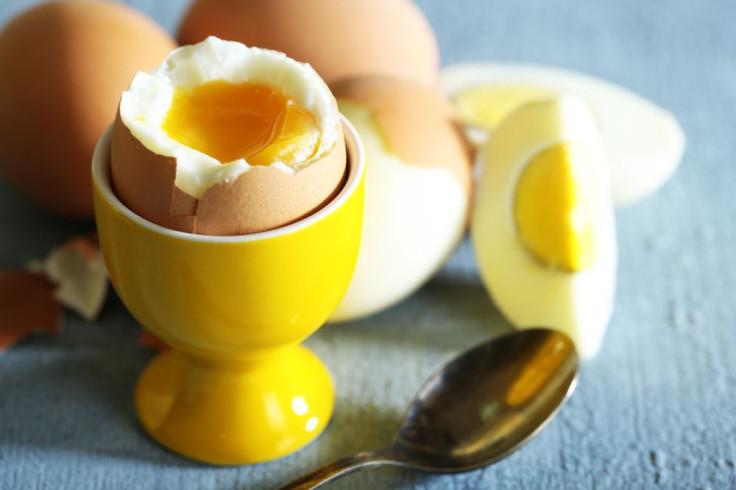Cancer Research And How To Un-Boil An Egg: The Future Of Food Science

I’m sure you’ve heard in recent news of the groundbreaking study where international scientists successfully figured out how to un-boil an egg — well, the whites of an egg to be exact. Although the “un-boiled” eggs whites are inedible, the feat is far from useless and could potentially make a big impact on our everyday lives. In a sentence I never thought I’d write, here’s how a bowl of uncooked egg whites could potentially save the world.
The Science Behind The Egg
Ask any body builder and he’ll tell you: Eggs are full of protein. All proteins are made out of molecules called amino acids, and when one cooks an egg these chains of amino acids change shape. The chains are no longer folded together nicely but rather become clumped together and solidified, according to Nature.com.
What the Californian and Australian collaboration of researchers managed to do was pull apart these tangled proteins and rehold them in their natural state. Although it sounds simple enough, the reality was far from it.
The NY Daily News reported that after the researchers boiled the eggs for about 20 minutes at 194 degrees Fahrenheit, they added the chemical urea — the main component in urine — to help re-liquefy them. This changed the physical state of the egg from solid back to liquid but did not change the egg proteins on a molecular level. In order to complete this, the scientists enlisted the help of a truly science fiction-sounding piece of technology called the “vortex fluid device.” The vortex fluid device then finished the unboiling process by untangling the proteins and restoring them to their natural state.
“The new process takes minutes,” biochemist Dr. Gregory Weiss, who had taken part in the study, explained in the press release. “It speeds things up by a factor of thousands.”
Cancer Research
Cancer researchers are truly excited by this unboiling of the egg because similar protein changes have been observed in the development of new cancer treatments. As reported by Time, scientists have struggled to efficiently recycle molecular proteins, and this has forced them to use expensive methods to develop cancer antibodies. As explained by Weiss, “The real problem is there are lots of cases of gummy proteins that you spend way too much time scraping off your test tubes, and you want some means of recovering that material.”
The un-boiling process may be the answer to this cancer research dilemma. “I can’t predict how much money it will save, but I can [predict] this will save a ton of time, and time is money,” Weiss said.
Food Science
Although the un-boiled egg can’t be eaten, it’s still likely to make a large impact on the food industry. “This method … could transform industrial and research production of proteins,” the researchers concluded in their study, refferring to the fact that the ability to quickly and cheaply rearrange proteins could help industrial food producers, such as cheese manufacturers and farmers who use recombinant proteins, produce more products and waste less, resulting in an overall higher profit.
Source: Yuan TZ, Ormonde CFG, Kudlacek ST, et al. Shear-Stress-Mediated Refolding of Proteins from Aggregates and Inclusion Bodies. ChemBioChem. 2015.



























